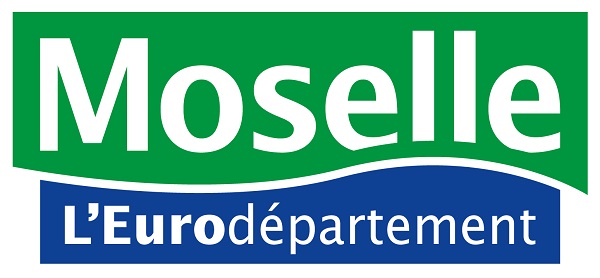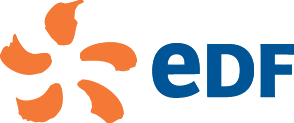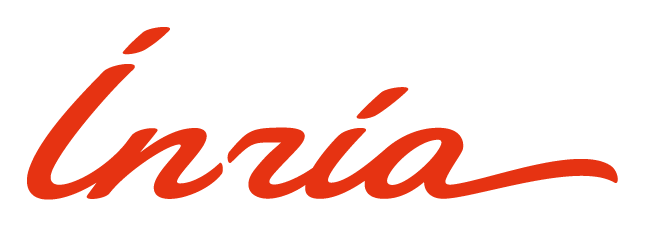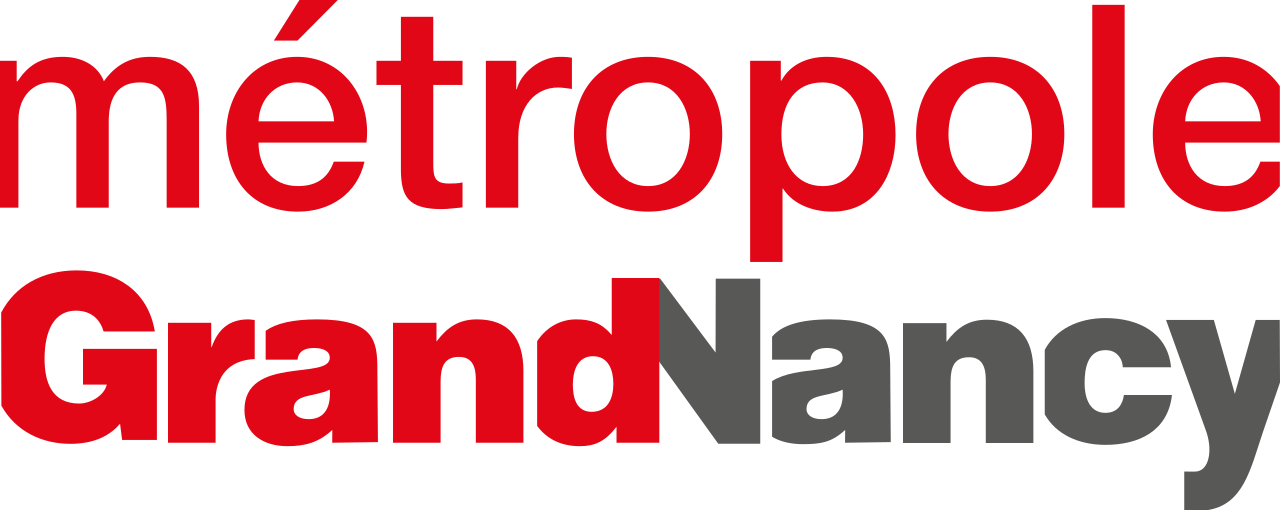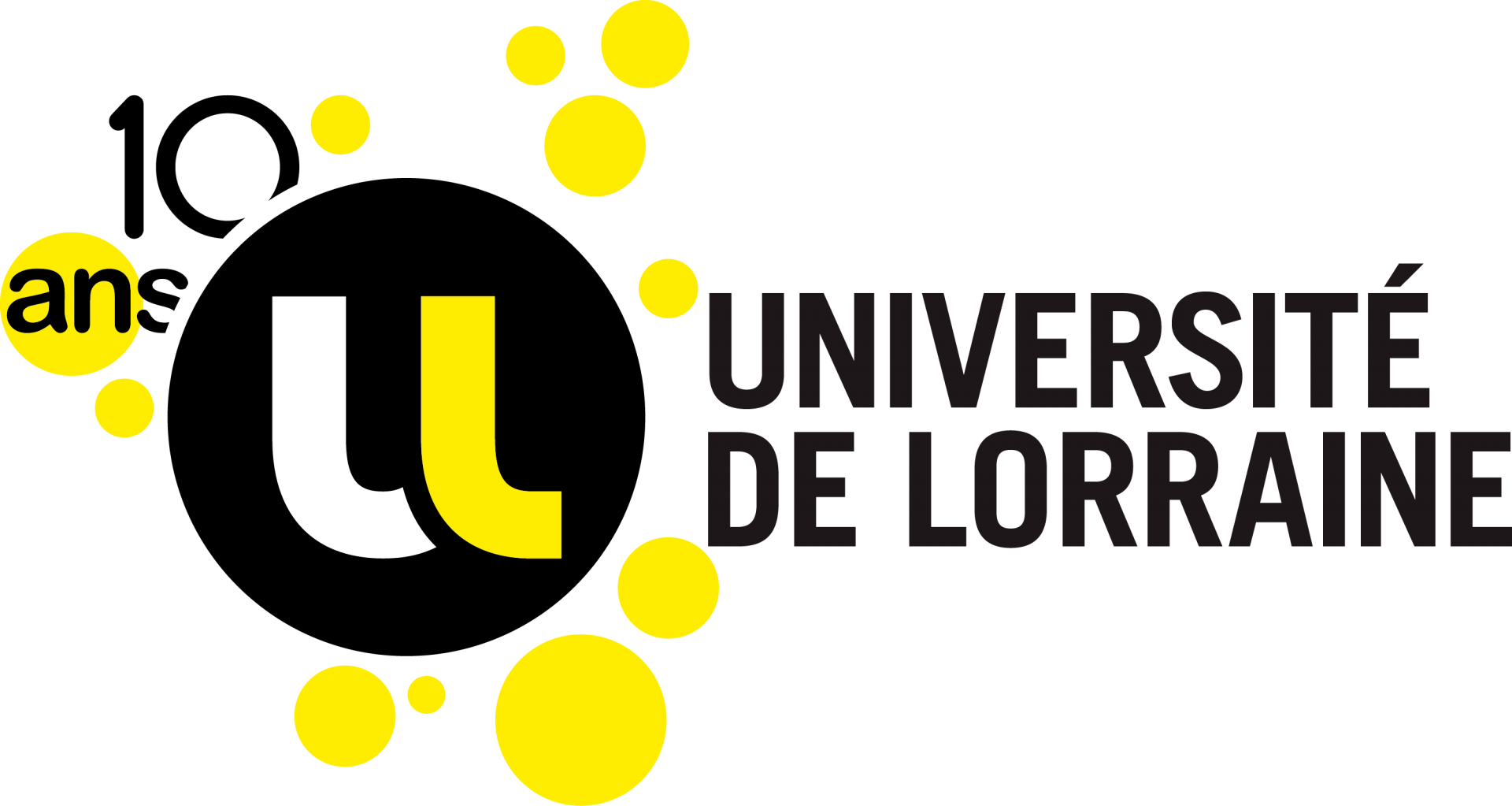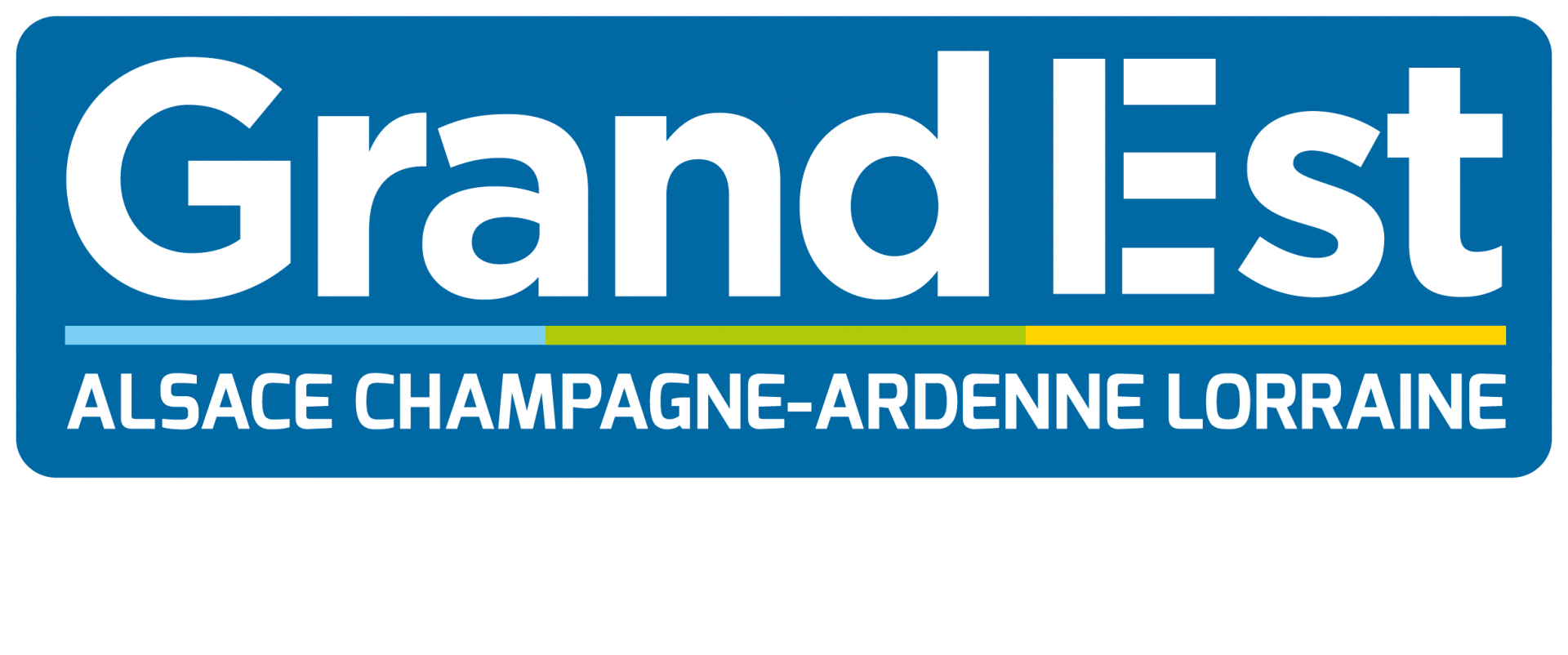The Sciences and Culture Forum will be located at the heart of the Schuman Centre during the conference, and will take the form of a trade fair: the exhibitors’ areas will be devoted to Science & You 2021’s partners.
A true occasion for exchanges between the conference’s participants and its partners, the Forum is intended as an ideal venue for meetings, discussions, and exchanges of good practices. Exhibitors’ areas will be available, complete with an agora, where recreations of Science&You doctoral courses will take place. The Forum will also be the exhibition venue for the conference’s science posters.
The Forum will be set up on Thursday 18 November 2021, from 11.15 am to 1.45 pm, during a dedicated time slot.
Thursday 18th November 11:15 a.m.-1:45 p.m. |
|
ANDRA - Agence Nationale pour la Gestion des déchets Radioactifs (French National Agency for Radioactive Waste Management) : What strategy should there be for scientific mediation on controversial subjects?
Attended by Jacques Delay and Eric Poirot. The Agence Nationale pour la gestion des Déchets Radioactifs is tasked with the long-term management of radioactive waste produced in France. It lends its expertise and know-how to the State with the aim of: finding, implementing and guaranteeing safe management solutions for all French radioactive waste in order to protect present and future generations from the hazards posed by such waste. | |
ATORIKA : ATORIKA SAS
Atorika is an EdTech startup that offers children the opportunity to explore the sciences and the arts through experience. On our stand, you will be able to have a look at our products: home boxes grouped in the form of themed adventures. You will be able to judge the content of our boxes and test out our telephone- and tablet- compatible app tutorials, which allow children to create their own workshops. Children can progress at their own pace and according to their preferences. And since Atorika is keen to develop the good use of new technologies, you will also be invited to test our innovative immersive experiences, using our virtual reality headsets and our augmented reality apps. | |
AUF - Agence Universitaire de la Francophonie (Association of Francophone Universities) : Association of Francophone Universities
The Agence Universitaire de la Francophonie (AUF) brings together 1007 French-language universities, higher education institutions, university networks and scientific research centres from within 119 countries. Created 60 years ago, it is one of the world’s largest associations of higher education and research institutions. With due regard to a diversity of cultures and languages, the AUF is engaged in French-language teaching that is committed to the economic, social and cultural development of societies. The AUF promotes solidarity between higher education and research institutions for the implementation of projects that actively transform the university system. It has links with a number of partners: private companies and their foundations, states and governments, national development aid agencies, international organisations, non-governmental organisations, and university, scientific and cultural associations. Its teams around the world provide follow-up and advice as regards the design and monitoring of projects, and facilitate the sharing of good practices, expertise and innovations. Find us on www.auf.org | |
Café des sciences (Science Café) : Coffee-break Science
Café des Sciences is a non-profit (“loi 1901”) association set up in 2008, which brings together a community of science enthusiasts who produce blogs, video channels, comic-strip or picture blogs, and podcasts, and also social media science reporters. The association has over 150 members, who work via various digital media available to all. Yes to popularisation, but what form should it take? From video and drawings to listening devices, there are a number of different types of media geared to learning more at home, on the train or with the children. This time, it’s the Café des Sciences’ turn to ask you a question: what do YOU use plain-language Internet content for? Come to our stand and tell us, learn more about our association and take away a selection of new content to look at! | |
CASDEN Banque Populaire (People’s Bank) : CASDEN Banque Populaire
Originally created by teachers, today the CASDEN cooperative bank caters to the needs of all Public Service employees. With over 2 million members, it aims to become the leading Public Service bank and meet the needs and expectations of its members as closely as possible. It offers them financing solutions that are only available through the Banques Populaires, allowing them to benefit from comprehensive and local banking services. Come and meet the CASDEN Banque Populaire, the Public Service’s cooperative bank, at its stand. A partner of the University of Lorraine for over 15 years, and of the Science & You event, the CASDEN Banque Populaire has a network of Regional Coordinators within Higher Education, Research and Culture who meet with the staff of universities, higher education institutions and research organisations. The CASDEN Banque Populaire has developed its relationships with such institutions in order to promote the construction of projects that work towards improving the lives of staff and disseminating scientific culture. The educational dimension inherent in scientific mediation really resonates with the CASDEN, which was originally created by and for teachers. Indeed, it is essential for young researchers to be able to share their experiences with as many people as possible so as to open minds, create vocations and contribute to the advance of science within various fields. The CASDEN Banque Populaire’s mission is to support Public Service employees, including researchers, in their personal and professional projects. | |
Communicasciences : Echosciences, a platform for sharing knowledge and innovations
An Echosciences Grand Est-based knowledge-sharing association Since 2012, the Echosciences platform has highlighted Scientific, Technical and Industrial Culture initiatives within the territory. Designed to localise agendas on a map, this tool has been developed for professionals, amateurs and teachers: it also lists articles, resources, announcements and other items within files and/or communities. This stand is presenting this amazing free tool which provides a rich network within each given territory. | |
CORDIS : CORDIS
Le service d'information sur la recherche et le développement communautaires (CORDIS) est la source principale de la Commission européenne pour les résultats des projets financés par les programmes-cadres de l’Union européenne pour la recherche et l’innovation. Notre mission est de mettre à disposition des professionnels sur le terrain les résultats de la recherche, afin de favoriser la science ouverte, de créer des produits et services innovants et de stimuler la croissance dans toute l’Europe. Vous recherchez des résultats de la recherche européenne accessibles ? Vous êtes intéressés par les avancées scientifiques ? Vous êtes à la recherche d’un partenaire de projet ? CORDIS peut vous aider ! Venez visiter notre stand pour y découvrir toutes ces informations et bien plus encore. Vous pourrez ainsi y trouver toute une variété de publications papier ainsi que de nombreux autres supports de communication conçus pour diffuser les résultats des projets financés par l’UE. Vous avez des questions ? Venez nous rendre visite ! | |
Département de la Moselle : Département of Moselle
As a local regional authority, the Département of Moselle is an essential local actor, guarantor of the solidarity of territories and their inhabitants throughout Moselle. It acts on a daily basis to ensure the area’s attractiveness and its population’s wellbeing. Moselle Attractivité, Moselle’s Tourism Development Agency, will be present to acquaint participants with Moselle’s many attractions. | |
EDF : ------to come------
-----Presentation------ -----à venir------- | |
Escales des sciences (Science Stopovers) : Science Stopovers
The University of Lorraine is developing an ambitious cultural policy through territory-wide initiatives, involving and supporting lecturers, doctoral students and students. “Escales des sciences” is an irrigative approach to developing the territory; it aims to disseminate scientific, technical and industrial cultures (CSTI). As part of the Escales des Sciences project, Accustica, la Nef des Sciences and the University of Lorraine are organising travelling exhibitions in the Grand Est Region: exhibitions in panel form, staged turnkey exhibitions and educational kits that cover general scientific topics. | |
Eurométropole de METZ : CaMéX-IA / e-Lumi
DIDA CONCEPT specialises in design, development, manufacture and distribution of higher educational products. DIDA CONCEPT is also involved in the development of the e-Lumi kit, a unique innovative product that aims to familiarise lower secondary students with the concepts and applications of photonics from four theme-based angles: light and communication, light and digital technology, light and vision, and light and energy. Our strong points: quality of our expertise and products, equipment at competitive prices and meeting high didactic requirements, and ongoing research on technical and educational innovations. "e-Lumi", light up your knowledge! “Light is an inspiring subject in many disciplines and is the perfect catalyst to promote science education among young people…” (UNESCO website). Genesis of the “e-Lumi” kit: the idea was born in Metz, at CentraleSupélec’s Chair in Photonics, which came up with the notion of introducing schoolchildren to the various applications of light through simple, fun experiments. The idea aroused the interest of Dida Concept, which specialises in design and sale of educational tools. The Département of Moselle lent its support to the idea’s development and suggested that a product (long referred to as “cartable lumière” – light satchel) be created for its lower secondary schools. Many months of work followed, also involving several teachers from Moselle’s schools, the Nancy-Metz Education Authority’s Physics and Chemistry Inspectorate, and a communication agency. A little less than a year later, the idea became reality and “e-Lumi” was officially presented during the International Day of Light on 16 May 2019. On 17 January 2020, another phase was launched, that of its rollout in all Moselle’s lower secondary schools! Description of the “e-Lumi” stand: The “e-Lumi” kit, intended for lower secondary physics and chemistry teachers, will be presented. The kit is in the form of a game box containing the materials necessary to conduct 14 simple experiments in class (light and communication, light and digital technology, light and vision, and light and energy) along with numerous teaching aids and a pack of 40 cards.
Metz’s Arts and Trades campus is a unique multicultural international campus that delivers double degrees. It trains general engineers and offers two specialities in the Grande Ecole Programme (Management of Technological Innovation for Automobiles and Management of Factories of the Future), two double degrees (Franco-German and Franco-American), a Specialised Engineering Programme in Design and Operation of Industrial Equipment (3-year apprenticeship contract), and two national Research Master’s degrees (Mechanical Engineering, Materials, Structures and Processes and Knowledge Integration in Mechanical Production - Design and Manufacturing). Two laboratories attached to the campus take an active part in developing scientific research: the Laboratory for Studies of Microstructures and Mechanics of Materials (LEM3) and the Laboratory for Design, Manufacture and Control (LCFC). Their work aims to provide practical answers to companies’ problems, in particular in the steel and automotive sectors, both of which are very active in the region.
CaMéX-IA Grand Est: Augmented and Virtual Reality technologies contributing to the training of tomorrow’s talents Keeping up close ties with the Grand Est Region’s socioeconomic operators, its academic and industrial actors in particular, Metz’s Arts and Trades campus promotes a variety of large-scale projects, including 1G4.0, and, more recently, the creation of a Professions and Qualifications campus (CaMéX-IA Grand Est - Digitation and Uses of Artificial Intelligence). CaMéX-IA results from the union of 27 partners on 35 sites, including general upper secondary schools, higher education institutions and large companies. CaMéX-IA’s missions are (i) to unite the Grand Est Region’s training bodies and companies in order to accelerate today’s and tomorrow’s talents, whether still in vocational education or already employed, in our territories and companies; (ii) to assist our Region’s companies in their digital transformation by training profiles that match their needs and providing them with special access to the young talents we train; (iii) to train our trainers in order to incorporate 4.0 technologies into their teaching methods; (iv) to invest in pooled digital infrastructures; (v) to increase the attractiveness of professions in industry and construction, by promoting our partner companies’ employer brands in the context of “Corporate Social Responsibility”-orientated student activities, and participating in numerous regional trade fairs promoting these professions; (vi) to guide learners through an innovative vocational coaching system, with a view to revealing their talents and integrating them into companies in our Region.
| |
FESP-MGEN - Fondation d’entreprise MGEN pour la santé publique (MGEN Corporate Foundation for Public Health) : MGEN Corporate Foundation for Public Health (FESP-MGEN)
The Foundation is composed of an interdisciplinary team of fifteen people with different profiles and backgrounds. It has hosted the UNESCO “Education & Health” Chair since 2018. Funded by the MGEN, the Foundation conducts some of its public health research in collaboration with other national and international research teams. The results of this work are disseminated to the scientific community and via its website (www.fondationmgen.fr). Research training for students also forms part of its missions. Presentation of research by the MGEN Public Health Foundation in the form of posters: Teacher’s well-being at work and quality of life : Any differences according to years of experience ? Laurent ZAVIDOVIQUE, Fabien GILBERT, Marie-Noël VERCAMBRE-JACQUOT Determinants of the cost-effectiveness of telemedecine : results from a systematic review and multivariable analysis Bell-Aldeghi R, Gibrat B, Chauvin P, Rapp T, Ould-Kaci K, Sevilla-Dedieu Chttps://www.ispor.org/heor-resources/presentations-database/presentation.... PNS45. https://doi.org/10.1016/j.jval.2020.04.1055. Value in Health; 23(1) : S292 Ref : Annual Congress of the International Society for Pharmacoeconomics and Outcomes Research (ISPOR), Virtual 18-20 mai Including 3 Motion Design on Qualité de Vie des Enseignants (QVE) (Quality of Life for Teachers).
| |
Fondation La main à la pâte – Maisons pour la science (Science Centres) : Fondation La main à la pâte – Maisons pour la science
Launched by Georges Charpak and the Academy of Sciences in 1995, the La main à la pâte (Lamap) Foundation has been developing science education that encourages all pupils, children and adolescents to explore and understand the natural world and its mysteries, along with machines and how they function. The Lamap Foundation provides support to teachers, giving them confidence where required, and supplying educational tools and professional development courses. To break the isolation often experienced in the exercise of their profession, it is keen to connect them, in an organised and sustainable way, to researchers and engineers who are involved with science on a daily basis. Representatives from the La main à la pâte Foundation / Maisons pour la science will be presenting support schemes for primary and secondary school Science and Technology teachers. And, in particular, the “Esprit scientifique, esprit critique” (“Scientific mind, critical mind”) project which includes self-study resources for teachers, scientific insights and classroom activities that cover 5 major themes relevant to critical thinking and a scientific approach: Observing, Explaining, Assessing, Demonstrating and Inventing.
| |
Orange Group : Present and future technologies and their uses by Orange
Orange is one of the world’s main telecommunications operators, with a turnover of 42.3 billion euros in 2020 and 140,000 employees on 31 March 2021. The Group served 262 million customers on 31 March 2021. In December 2019, the Group presented its new strategic plan, “Engage 2025”, which – with guidance from social and environmental leadership – aims to reinvent its job as an operator. Whilst boosting growth-generating territories and areas and by putting data and AI at the centre of its innovation model, the Group aims to be an attractive and responsible employer. The Orange Group will be presenting its careers of the future to students. IA, data, cyber security; key sectors for tomorrow’s careers. Orange Cyberdefense will also be present to demonstrate cyber security solutions and raise awareness of the importance of securing its tools and their uses. Their aim is to illustrate recent developments in the uses of new technologies, and the challenges of developing them. | |
INRAE : Scientific mediation through play and participatory science at INRAE
INRAE, the Institut national de recherche pour l’agriculture, l’alimentation et l’environnement (French National Institute for Agriculture, Food and the Environment) is one of the world’s leading research organisations in the agricultural and food sciences, in plant and animal sciences, and in ecology/the environment. It is the world’s leading specialised research organisation for “agriculture/food/environment” as a whole. INRAE aims to be a key player in the transitions required to meet major global challenges. Faced with population growth, climate change, the scarcity of resources and the decline in biodiversity, the institute is building solutions for versatile farming systems, high-quality food and the sustainable management of resources and ecosystems. “Opening up science and sharing knowledge” is one of INRAE’s main challenges, in order to ensure that each citizen may play an informed role in society. In recent years, participatory science has been developed at INRAE. This helps to address citizens’ growing concerns about their food, their environment and their health, whilst helping to raise awareness regarding the scientific approach. At the Grand Est – Nancy INRAE Centre, the Tous Chercheurs Nancy laboratory organises research internships that allow different audiences (schoolchildren, professionals and citizens) to participate, from observation to the interpretation of results – including laboratory work – to the analysis of data and ticks collected with researchers as part of the CiTIQUE participatory research programme. For the general public, scientific mediation also involves games. On the INRAE stand, you’ll find 2 games. “STÅL Invasions” is a “learning game” that puts players in a situation where they can apply the principles of agroecology. Within a context where resources are limited, and on a new planet where everything can be reinvented, players must develop virtuous strategies to protect their crops and collaborate to survive. The game “Plants and us, a shared history” allows all the plants on which the Institut Amélioration Génétique et Adaptation des Plantes (Agap) (Institute for the Genetic Improvement and Adaptation of Plants) is working to be presented to the general public in a fun and educational way. The public are asked about the place of plants in everyday life since prehistoric times. Over 1000 pupils, from CPs (six-year-olds) to BTSs (2-year higher education technician’s diploma students) have already played this game. | |
INRIA : Virtual immersion at the heart of a computer
Inria is the French national research institute for digital science and technology. World-class research, technological innovation and entrepreneurial risk make up its DNA. Within 200 project-teams, most of them shared with major research universities, over 3,500 researchers and engineers are exploring new avenues, often using an interdisciplinary approach and in collaboration with industrial partners, in order to meet ambitious challenges. As an institute of technology, Inria supports diversity in innovation: from open source software editing to the creation of technology start-ups (Deeptech).
| |
INSERM : INSERM
Created in 1964, the Institut national de la santé et de la recherche médicale (Inserm) (French National Institute of Health and Medical Research) is a public science and technology institution jointly supervised by the Ministry of Higher Education, Research and Innovation and the Ministry of Solidarity and Health. The Inserm is the only French public organisation dedicated to biological, medical and public health research; it is involved in the entire chain, from the research laboratory to the patient’s bed. Its researchers’ task is to study all diseases, from the most common to the rarest. The Inserm helps to promote the work and results of research laboratories. At both national and local levels, the Inserm is investing in scientific culture and the dissemination of knowledge. A virtual museum, works designed for the general public, audiovisual productions and the Inserm’s scientific news magazine: these are all tools that ensure the dissemination of high-quality information to all. The Inserm would like to encourage you to explore the latest innovations (exhibitions, clips, virtual reality, escape game); all these tools and scientific culture media are designed to help put science within everyone’s reach. Presentation of virtual reality video games: ViRal Original creation of Inserm, ViRal transports you to a futuristic and medical virtual world. it will be necessary, through different missions and thanks to a biocapsule that you control by brain / machine interface, to explore the blood vessels and to make your way through the mucus in search of an infectious site, then to detect and treat the gnawing ailment the patient, and finally remove the biocapsule from the body with a sample to allow the manufacture of a large-scale treatment and avoid a pandemic! Your turn to play. Take the helm! | |
Pôle muséal de la Métropole du Grand Nancy & Jardin Botanique Jean-Marie Pelt : Greater Nancy Metropolis Museum Centre & Jean-Marie Pelt Botanical Gardens
The Greater Nancy Metropolis Museum Centre is composed of the Museum-Aquarium in Nancy, the History of Iron Museum & the Chateau de Montaigu. It is part of the Greater Nancy Metropolis’ Culture, Sport & Social Life Centre which also includes the Jean-Marie Pelt Botanical Gardens. The Greater Nancy Metropolis Museum Centre, composed of the Museum-Aquarium in Nancy, the History of Iron Museum & the Chateau de Montaigu, including the Jean-Marie Pelt Botanical Gardens, is off to meet the public at “Science & You”! Would you like to know more about the Greater Nancy Metropolis’ museums & gardens? Would you like to know all about their cultural schedule for 2021/2022? This Thursday, 18 November, all three scientific culture institutions will be present and available to the forum’s visitors. | |
Région Grand Est : ------to come------
-----Presentation------ -----to come------- | |
Sciences en Lumière : Light Sciences
Sciences en Lumière is a scheme led by the CNRS (French National Centre for Scientific Research) and the University of Lorraine; it aims to bring together the public and researchers. Sciences en Lumière is infiltrating the territories and proposing debates between scientists and citizens, using film to attract their attention. With support from the territories’ local players, SEL is meeting remote audiences and those for whom access is a problem. An original, joint scheme between the Centre-Est CNRS and the University of Lorraine, Sciences en Lumière has been establishing a network in the Grand Est Region’s territory since 2012. SEL was inspired by its ancestor, the Researchers’ Film Festival, in using film to attract the public’s attention, thus making it easier for everyone to pluck up the courage to interact with researchers. Sciences en Lumière co-develops its events with local players in order to best meet citizens’ expectations in terms of topics, for example. SEL strives to reach out to remote audiences and those for whom access is a problem, with a consistently relaxed and caring approach. Since 2012 almost two hundred researchers have assisted at a SEL screening/debate. During the pandemic, Sciences en Lumière created a new offering via podcasts: interviews with researchers. Sciences en Lumière relies on the scientific community of the various partners of CNRS and the University of Lorraine, in particular INRIA, INRAE, CHRU (Regional University Hospital), etc.
| |
Université de Lorraine : The University of Lorraine
For the past 10 years, the University of Lorraine has been bringing knowledge into dialogue by putting all its energy into the production and sharing of knowledge, with the ambition of facing the major societal challenges. It is committed to raising the level of education of citizens, relying on a dynamic of intensive research, both fundamental and applied, thanks to its 60 laboratories with 4,000 teaching and research staff. With Science&You, it brings together over 4 days the actors of scientific communication from all over the world to propose an in-depth reflection on the relationship between citizens and science and thus to propose solutions to the issues related to trust in science. | |









